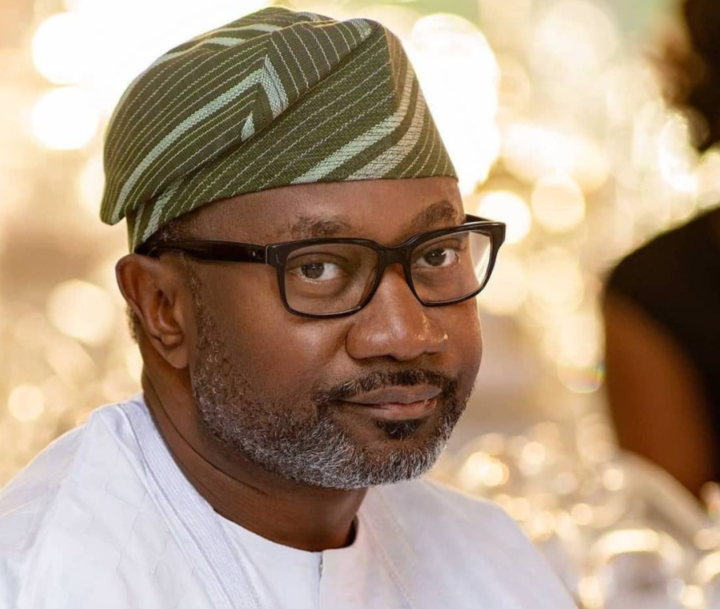Nigerian billionaire businessman, Femi Otedola, has strongly criticized Umar Sani, a political commentator and former aide to ex-President Goodluck Jonathan, over remarks he made concerning fuel subsidy and Otedola’s role in the oil sector. The disagreement has quickly gained attention in national discourse, particularly against the backdrop of ongoing debates on the true state of Nigeria’s subsidy regime and its impact on the economy.
Otedola, who is the Chairman of Geregu Power Plc and a key player in Nigeria’s energy sector, expressed dismay at what he described as Sani’s “ignorant and misleading claims.” In his statement, Otedola stressed that Sani’s commentary on subsidy issues reflects a poor understanding of both the complexities of the petroleum market and the roles private sector players occupy in it. He further warned that such misinformation has the potential to mislead the public at a sensitive time when the government is seeking solutions to Nigeria’s fuel supply challenges.

The controversy began when Umar Sani, during a televised interview, suggested that Otedola and other major oil marketers had benefited unduly from fuel subsidy payments in the past. He implied that such players might not have Nigeria’s best interests at heart in current debates around deregulation and subsidy removal. According to him, the persistent fuel crisis and fluctuating prices could be traced to the activities of influential businessmen within the energy sector.
Otedola responded swiftly, rejecting the accusations and accusing Sani of making careless statements without evidence. He reminded the public that as a businessman, his ventures were fully compliant with regulations and carried out transparently. Otedola highlighted that his company, Geregu Power, is focused on electricity generation, not the importation or trading of petroleum products, making Sani’s assertions not only inaccurate but deliberately misleading.
The businessman also used the opportunity to stress the need for fact-based discussions around fuel subsidy, deregulation, and energy reforms. He noted that subsidy was a policy decision by successive governments, not a scheme designed by private investors. According to him, dragging individuals into a policy debate without proper context diverts attention from the real issues—such as poor refinery capacity, dependence on imports, and inefficiencies within the petroleum supply chain.
Otedola’s strong reaction has sparked mixed reactions across the country. Supporters of the businessman argue that his reputation as a transparent entrepreneur stands in contrast to the insinuations made by Sani. They point to his significant investments in power and energy infrastructure as evidence of his commitment to national development. Many industry observers believe that Otedola’s intervention is a reminder that careless remarks about subsidy could discourage private sector participation at a time when Nigeria desperately needs fresh investments in energy.
On the other hand, some commentators believe the clash between Otedola and Sani highlights the deep mistrust between the public and private players in Nigeria’s oil and gas sector. Over the years, Nigerians have associated the fuel subsidy regime with corruption, opacity, and the enrichment of select elites. For these critics, even when businessmen like Otedola insist on their innocence, the lack of transparency in subsidy payments makes it difficult for the public to draw clear distinctions.
The timing of the dispute is also significant. Nigeria is currently grappling with rising energy costs following the removal of fuel subsidies and the deregulation of the downstream sector. The government insists that removing subsidies will save trillions of naira and redirect resources into infrastructure, health, and education. However, citizens are struggling with high pump prices and inflationary pressures, creating fertile ground for heated debates.
Analysts say that while Otedola’s frustration with Sani’s remarks is understandable, the episode also underscores the urgent need for government to provide greater clarity and accountability in its subsidy policy. By publishing records of past subsidy payments, explaining ongoing reforms in the oil sector, and involving stakeholders in constructive dialogue, the government could reduce public suspicion and misinformation.
Industry experts also warn that public figures like Umar Sani must be cautious with their statements, especially when they involve individuals or corporations. They argue that loose remarks not backed by verifiable data can damage reputations and distract from the pressing issues at hand. For them, the focus should be on how to ensure Nigeria achieves self-sufficiency in refining, secures stable fuel supply, and protects citizens from the volatility of global oil markets.
For Otedola, the incident has reinforced his determination to set the record straight about his business interests and his contributions to the Nigerian economy. He emphasized that rather than engaging in baseless accusations, commentators should encourage policies that attract investment, support industrial growth, and expand energy access.
As the debate rages on, Nigerians are reminded of the sensitivity of subsidy discussions and the importance of factual, constructive engagements. With the economy under strain and citizens enduring rising costs of living, policymakers, private players, and commentators alike are urged to prioritize solutions over sensationalism.
Ultimately, Otedola’s rebuke of Sani serves as both a defense of his integrity and a broader call for responsibility in public discourse. The exchange has highlighted the dangers of misinformation in shaping public perception and policy debates, underscoring the need for accurate, transparent, and informed dialogue on Nigeria’s energy future.
Support InfoStride News' Credible Journalism: Only credible journalism can guarantee a fair, accountable and transparent society, including democracy and government. It involves a lot of efforts and money. We need your support. Click here to Donate
